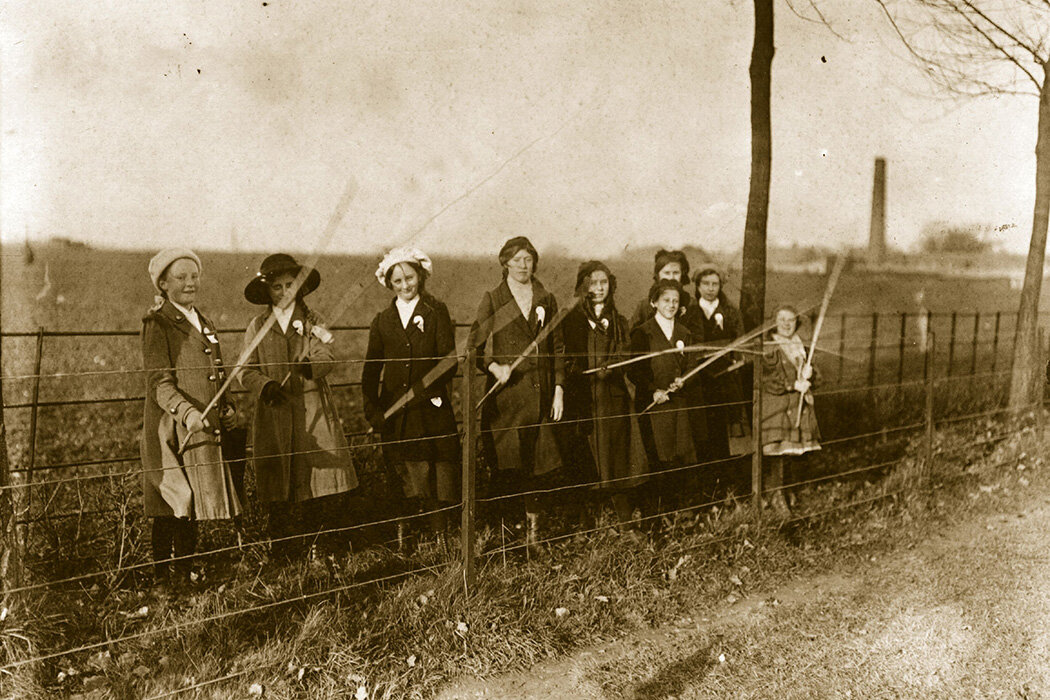1-minute video of Sound Off or the Duckworth chant, recorded at Ft. Slocum, New York in 1945. Jody makes his appearance toward the end of the clip.
10 March 2021
In the American military a jody or jody call is a marching or running cadence. Such marching cadences have been around for as long as soldiers have gone off to war, but the term jody dates to the mid twentieth century. Their lyrics cover a wide variety of topics, but the archetype is about a civilian named Jody who has stolen the soldier’s girl-back-home. Jody dates to World War II in military use, but it has roots in Black slang from slightly earlier.
Jody is a blend of the phrase Joe the Grinder, the name of the seducer. Joe is obviously a generic, male name, and the verb to grind has been slang meaning to copulate from the sixteenth century through to the present day.
The name Joe the Grinder is first recorded in 1939 in a blues song sung by Irvin “Gar Mouth” Lowry of Varner, Arkansas. But in Lowry’s song, it is the singer who identifies himself as Joe the Grinder; he is the wronged man, not the seducer. He is working away from home, perhaps in prison, although that’s not stated, and his girlfriend has left him. The roles may be reversed, but the song’s lyrics has all the elements of a military jody:
O They call me Joe the Grinder, O baby
[...]
Yes sir, poor boys along, a long way from home
Yes, I have nowhere to go, I have nowhere to go, man
O my baby she quit me, quit me [indistinct]
O my woman she gone, and I hope she will come back to me
O I asked my next-door neighbor where my woman go
O don’t nobody know my woman, don’t know her name
Joe the Grinder makes it into the pages of a major newspaper in 1940. Here it is the context of a prison. From the Atlanta Journal of 14 February 1940 (the irony of it being Valentine’s Day is unstated):
The worst enemy of a man sentenced to prison is “Joe the Grinder,” an ever-lurking psychological pest who haunts the prisoner with fears of losing his wife and home while serving his “stretch” behind the grim, bleak walls.
At some point before 1944 Joe the Grinder made the jump from seducing the wives and girlfriends of prisoners to those of servicemen. Here is a portion of poem submitted to the Black newspaper the New York Amsterdam News by a sailor and published on 9 September 1944:
He heard from her no more (traitor)
She took up with “Joe the Grinder” (double cross).
And forgot the guy in blue (no patriotism).
In making the transition from prison to the military Joe the Grinder was reduced down to Jody, but the full Joe the Grinder hung around in Black civilian slang. Here’s a quip by Black war correspondent Enoc Waters in Australia reporting from Australia in the Chicago Defender on 20 November 1943:
I overheard some soldiers referring to me as “Jody in an army uniform.”
The appearance of the seducer in marching cadences seems to have happened by 1944. In that year, Willie Lee Duckworth, a Black soldier stationed at Fort Slocum, New York wrote the famous Sound Off marching cadence, which quickly spread throughout the Army. There are many different versions of the lyrics, often incorporating Jody as a character.
Once in the military, Jody broke free of its Black slang origins and was taken up by White soldiers, sailors, and airmen as well. The following passage is from John Beecher’s 1945 book All Brave Sailors about his service on the Liberty ship SS Booker T. Washington. Unusually for a U.S. ship of the era, it was commanded by a Black captain and had a racially mixed crew—Beecher was one of the white officers on board:
"Some guys worry about their wives," Mac says, "about their going out with Jody." (Jody is the mythical character who takes care of seamen's wives and girl friends while they are away. He is pictured wearing the bathrobe, pajamas and bed-room slippers you carefully put away when you left.)
"I guess some have good reason to worry," I say. "Or else they have guilty consciences."
"Jody doesn't bother me," Mac says, "not with the kind of wife I have. But I surely miss her."
Allan Lyon records the lyrics of one of the versions of the Duckworth chant in his 1948 novel about the war, Toward an Unknown Station. The incident portrayed is set in France in 1944:
Rocco sang:
Ain’t no use in going home
Joady’s got your girl and gone
Sound off!
Hup, two
Sound off!
Three, fourGonna get a three-day pass
Just to kick old Joady’s ass
Sound off!
Hup, two
Sound off!
Three, four ...“Take a good look, fellows, this is Nancy.”
“Glad to meet you, Nancy.”
“The city of Nancy, you jerk.”
Every time I get a new allotment
Joady gets a new apartment
Sound off!
Hup, two
Sound off!
Three, four ...
Over the years the term jody widened to mean any marching or running cadence, not just ones complaining about civilian seducers back home.
Sources:
Beecher, John. All Brave Sailors. New York: L. B. Fischer, 1945, 118. HathiTrust Digital Archive.
Chequita Cynthia. “Something for the Boys.” New York Amsterdam News, 9 September 1944, 3-B. ProQuest Historical Newspapers.
Green’s Dictionary of Slang, 2021, s.v. Jody, n., grind, v.
Lighter, J. E. Random House Dictionary of Historical Slang, vol. 2 of 2. New York: Random House, 1997, s.v. Jody, n., Jody call, n.
Lowry, Irvin. “Joe de Grinder” (audio recording). John A. Lomax, collector. 1939. Library of Congress.
Lyon, Allan. Toward an Unknown Station. New York: Macmillan, 1948, 27–28. HathiTrust Digital Archive.
Maurer, David W. “Jody’s Chinese Relations.” American Speech, 57.4, Winter 1982, 304–06. JSTOR.
Oxford English Dictionary, second edition, 1989, s.v. grind, v.1.
Smith, Walter A. “Fear of Losing Wife and Home Termed Convict’s Worst Enemy.” Atlanta Journal, 14 February 1940, 16. NewsBank: America’s Historical Newspapers.
Video credit: U.S. Department of War sound recording, 1945. Public domain. Image of marching soldiers at Fort Slocum, 1945, U.S. Department of War photo. Photo paired with recording by Michael Cavanaugh, 2013, YouTube.




